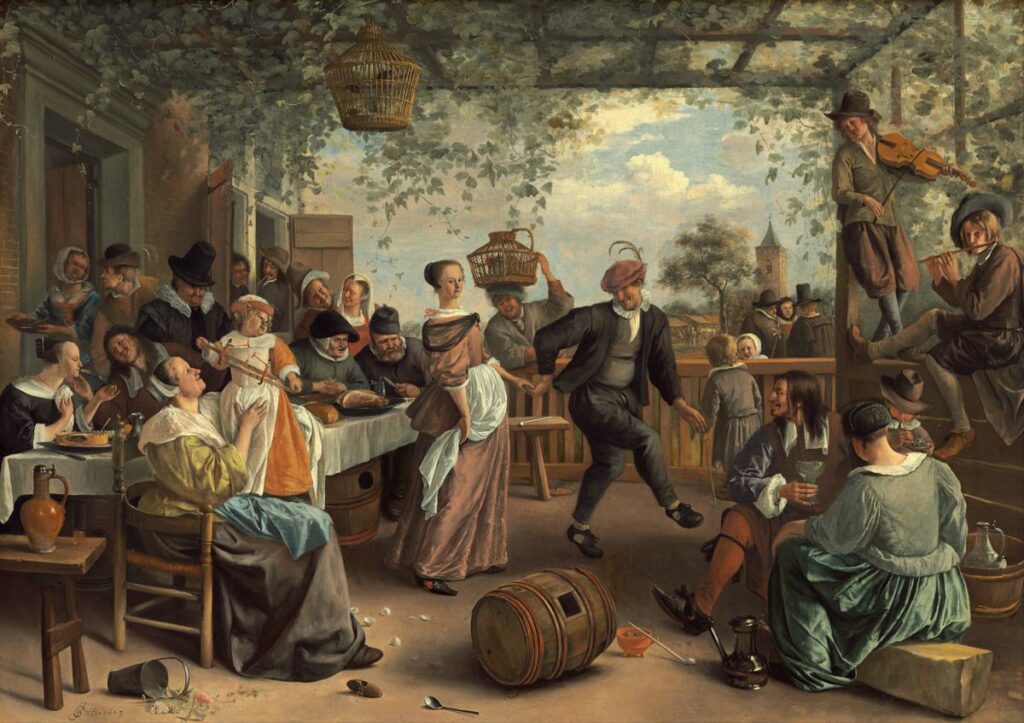My grandmother was what you’d call a social butterfly. She thrived on friendship: getting together, throwing parties, meeting people … anyone, from the cashiers at her local grocery store to the waitresses who would refill her coffee. Grandma was the kind of lady who never met a stranger. She could, and did, talk to just about anyone who would stand still to say hello and have a chat. This mortified me when I was younger, since I didn’t share this outgoing enthusiasm for social interaction. A simple run for milk turned into a much longer affair, as Grandma spotted people she knew immediately upon pulling into the parking lot. “Oh, look, there’s Myrtle. You remember Myrtle!” Of course I didn’t, but that didn’t stop Grandma from stopping to find out about Myrtle’s tennis elbow.
In addition to her vast web of friends, Grandma had a packed social calendar. She was always on the go. If she wasn’t hosting a pinochle party, she was square dancing or at any of the innumerable groups to which she belonged. Nary a day went by when one friend or another wasn’t stopping by for a bite of pie or coffee, and if there was a rare lull, Grandma was bustling to keep a spotless house for the inevitable guest who would be by momentarily. In short, Grandma was a busy dynamo, always occupied with someone or something. She passed away peacefully at 94 (playing cards that very morning), and she was the last person I would have thought of as lonely. She didn’t have time to be!
And yet, in the intervening years, I have begun to suspect otherwise. We all know a person who shares those hyper extroverted traits: always busy, never a moment’s rest. The picture of a lonely person seems the opposite of that very thing, and what comes to mind for many of us is stillness, a cease in that bustle. A person without friendship; a loner, or perhaps an older person who has suffered loss and grief. A thriving, vivacious extrovert is hardly appropriate for such a word. How can they even coexist? Isn’t loneliness the absence of friendship? How can a person with so many friends and constant activity be lonely?
If you consider the person in your life who might be of this extroverted nature, it’s true that they have many friends. However, like my grandma, the nature of those friendships can be somewhat shallow. In her case, it was always quantity over quality. She preferred to surround herself with a bright kaleidoscope of friends and activity, yet it was always party-like in nature, and I don’t believe that any one of us ever touched upon deeper problems or worries that she may have been facing. This is often the case for extroverts. This is not a problem, just a choice about how to socialize comfortably. It can, however, lead to assumptions about how fulfilled people may be. Many friends and being busy does not always equate to not being lonely.
Being busy can happen to anyone and does happen to us all, for a number of reasons. Younger people are particularly prone to the stress of their schedules because they haven’t learned the skill of time management yet. However, they too are at risk of being lonely even in a sea of acquaintances. As a society, we have come to believe the myth that activity and friendship are always positive, but this is not always the case. Of course, we are all free to choose how we socialize, but a discerning loved one will see if their friend of family member may need a little extra care in all the chaos. Identifying that an extrovert can, indeed, be lonely, is a first step. After that, it is easy to help. It doesn’t take much to make a heartfelt connection. Sometimes it’s just seeing them and being genuine in the moment, and differentiating yourself from the endless procession of people in their life. One real moment is enough to change a perspective for the better and show them that they aren’t alone. Can you reach out to your social butterfly to make that real connection today?



